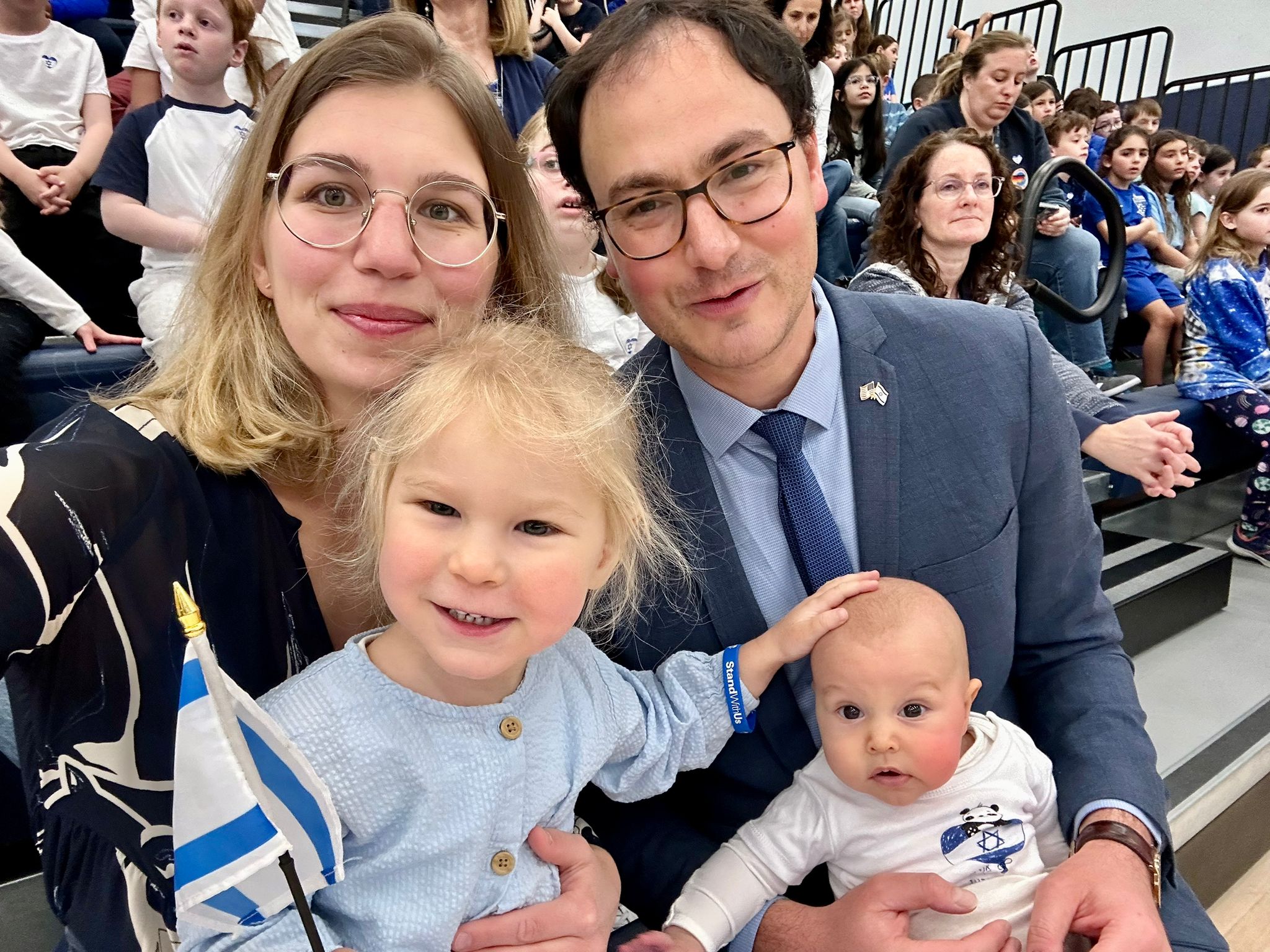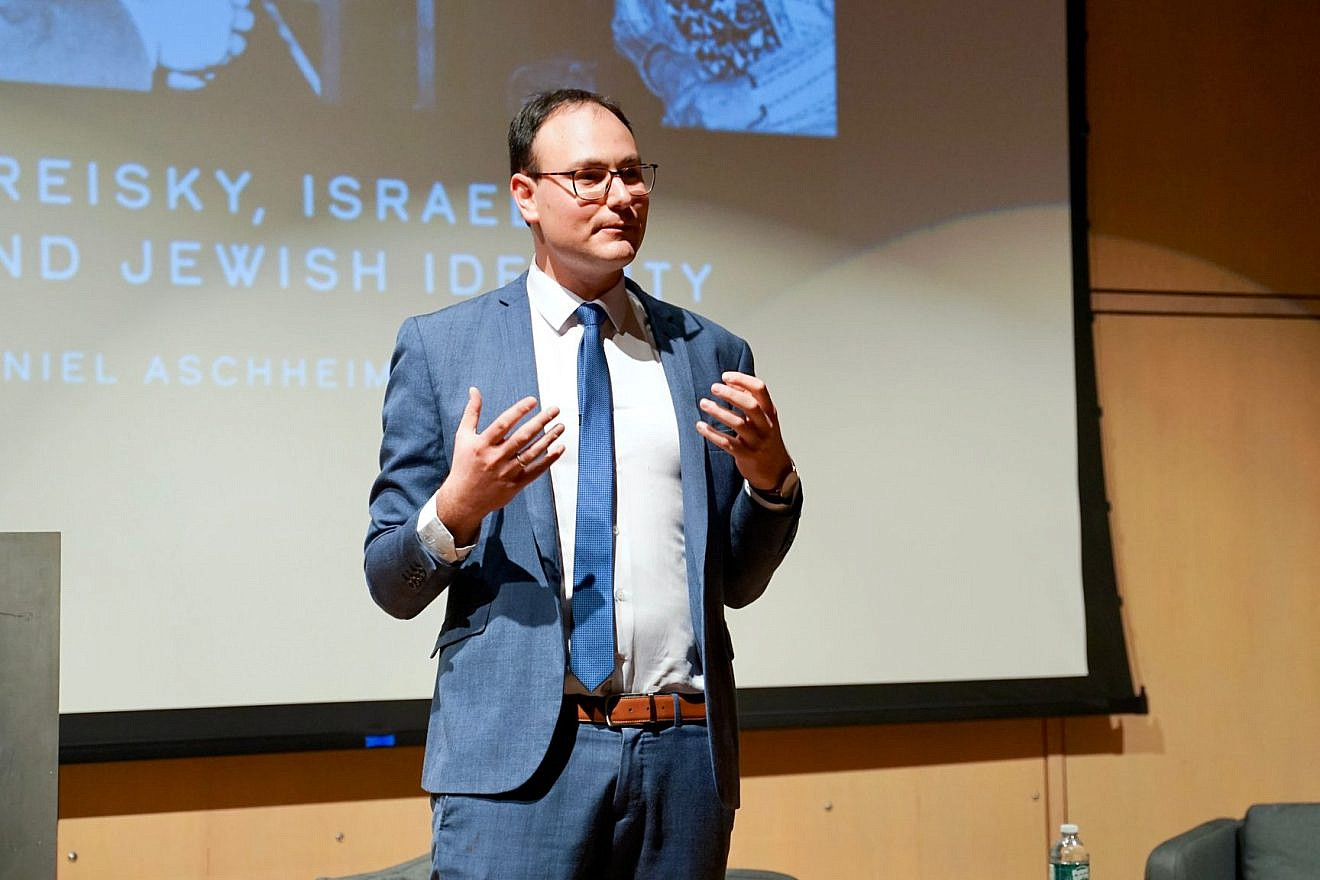Prior to 2018, Daniel Aschheim’s most extensive diplomatic experience was serving for five years as a concierge at the King David Hotel in Jerusalem.
“There are very few jobs out there where you can speak with diplomats and international dignitaries on the one hand and taxi drivers on the other,” Ascheim, who just turned 35, told JNS.
Ascheim has been deputy consul general of Israel to the Midwest, based in Chicago, since October 2021. He previously served as consul for public diplomacy (2020-21), and as deputy chief of mission of the Israeli embassy in Senegal, from 2018 to 2020. He has also served as public-relations director for Masa Israel Journey and as a spokesman for the Jewish Agency for Israel.
His current role brings Aschheim to other parts of Illinois, as well as to Indiana, Iowa, Michigan, Minnesota, Nebraska, North Dakota, South Dakota and Wisconsin. He works closely with black and Hispanic communities in Chicago, and throughout the Midwest, he told JNS.
The consul recently brought Israeli organizations, which have experience with trauma treatment, to Chicago to talk about the impact of shootings with local communal leaders. And it encouraged entrepreneurship by bringing Israeli professionals with diversity, equity and inclusion training to share their experiences with those in the Windy City.
A major area of focus is the Jews—of all stripes—of the Diaspora.
“Whether you are Orthodox, Reform, Conservative, Reconstructionist or unaffiliated, it is OK to have legitimate criticism on certain things, but we want to make sure that this dialogue continues and understand that we are in this together,” he said.

‘Most hated person by Israelis and Jews’
Aschheim will discuss his book, Kreisky, Israel, and Jewish Identity, which was based on his doctoral thesis, in a July 23 event at the Bernard Weinger JCC in Northbrook, Ill.
The book, released in November, centers on Bruno Kreisky, the former Austrian chancellor and “one of the most controversial leaders in World War II and the first and only Jewish leader of Austria,” he told JNS. “He was the most hated person by both Israelis and Jews in the 1970s.”
For his promotion of the so-called “victims doctrine”—that Austria was Nazi Germany’s first victim and for having Nazi ministers in his cabinet—some critics have called Kreisky a “self-hating Jew.” The chancellor was also called anti-Israel for being Europe’s first leader to recognize the Palestine Liberation Organization as the sole legitimate representative of the Palestinian people.
But Kreisky was much more complicated than all that, according to Aschheim.
“Kreisky described himself as a non-Zionist, but many of his actions were done for the sake of Israel,” he told JNS.
For example, Kreisky opened Schoenau Castle as a transit camp to tens of thousands of Jews fleeing the Soviet Union to Israel. When Palestinian terrorists captured three Jews and an Austrian customs official aboard a train from Moscow to Vienna in September 1973, Kreisky agreed to close the Schoenau Transit Camp and allowed the terrorists to flee the country in exchange for the release of the four.
The cover of Aschheim’s book is a photo of a tense meeting between Israeli Prime Minister Golda Meir and Kreisky after that 1973 incident. The Yom Kippur War followed in the next month, and in November, Kreisky re-opened the transit camp, allowing more Jewish immigrants to enter Austria and then travel to Israel.
“On the one hand, Kreisky cared about the future of Israel. But on the other hand, he harshly demonized Israel,” said Aschheim.

‘Our goal was to put Senegal on the map’
A Jerusalem native, Aschheim had prior Midwest experience prior to his diplomatic posts. He spent his freshman year of high school in Madison, Wis., in 2003.
“It was an amazing experience, but I must admit I did not particularly miss the Midwestern winter,” he told JNS.
He, his wife Elisa, and their daughters Ella and Noa, now live in Chicago. The family has a Bichon-Maltese dog, named Tommi, which he adopted in Senegal.
Between Midwest stints, Aschheim served in the intelligence Unit 8200 of the Israel Defense Forces, he told JNS. He then spent six months in China and Thailand, and then earned a degree at Reichman University, then called IDC Herzliya.
As a college student, he interned at the British embassy in Tel Aviv. Later, he interned for Erel Margalit, then a Knesset member.
He subsequently earned both master’s and doctorate degrees at Hebrew University. The latter, in European studies, paved the way for the book.
When he served as deputy Israeli ambassador in Dakar, Senegal, Aschheim was also charged with serving four other West African countries: Guinea, Guinea-Bissau, Cabo Verde and Gambia.
“Our goal was to put Senegal on the map and make it the startup nation of Africa by 2025 based on the Israeli model,” he said. “I think we contributed toward that goal.”
On a personal level, Aschheim said he felt very comfortable and was warmly welcomed as a Jew and an Israeli in West Africa. The region tends to adhere to Sufi Islam, “which embraces tolerance and moderation,” he said.
“We did a lot of programming on interreligious dialogue, where we brought rabbis, priests and imams to sit together. But on the international arena, we had challenges, because they were constantly voting against Israel in the United Nations,” he noted.
A member of the Arab League, Senegal heads the U.N. Committee on the Exercise of the Inalienable Rights of the Palestinian People, which may explain the country’s history of voting against Israel at the international body, according to Aschheim.
“We have seen some more positive changes over time,” he said. “We don’t know what the future will bring, but hopefully, we will continue to bridge this gap through other bilateral ways.”


























